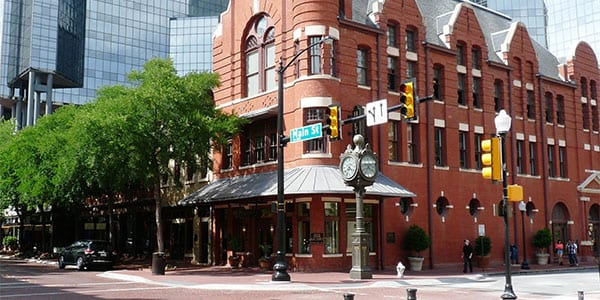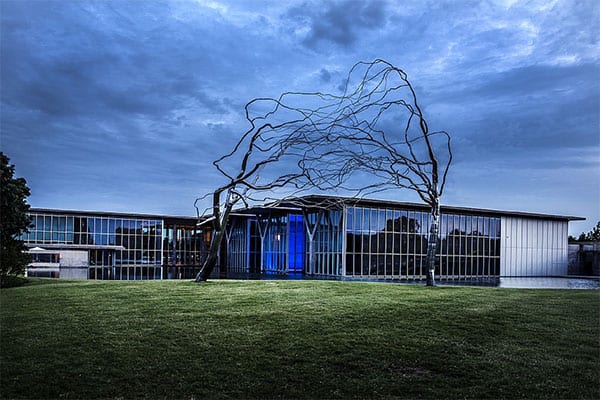Factoring Companies in Fort Worth
Fast Cash with Invoice Factoring
Accounts-receivable financing, also referred to as invoice factoring, is a common cash-flow solution many companies use to fund their businesses. If you’re waiting on slow-paying customers and need quick access to working capital, look no further than our Fort Worth invoice factoring and accounts-receivable financing programs.
Scale Funding is your number-one choice over other factoring companies in Fort Worth. Here are just a few of the benefits of choosing us.
- Quick, 15-minute approvals
- Free no-obligation quote
- Fast setup process
- No application fees
- High advances up to 95 percent
- Same-day funding
- Low rates
- 24/7 online customer support
Industry Expertise
Scale Funding has helped a variety of industries with our Fort Worth accounts receivable financing and invoice factoring programs.
- Oilfield Services
- Utility & Pipeline
- Heavy Construction
- Trucking & Freight
- Technology
- Government Contractors
- Staffing Agencies
- Renewable Energy
- Many Others
Flexible Programs with Fast Funding
While there are several ways for businesses to get cash, not all are as quick and flexible as our invoice factoring programs. Both start-ups and growing companies choose to work with Scale Funding over other factoring companies in Fort Worth because we provide cash even when other lending companies can’t.
Our accounts receivable financing programs depend on your customers’ credit, not yours. So if you’re credit is less-than-perfect or maxed, we can still help. If a bank turned you down because of a tax lien or bankruptcy, our creative solutions can help.
Scale Funding helps a variety of businesses even with unique financial situations. As long as you’re waiting to get paid from slow-paying customers and you invoice other businesses on net terms, we can help. Get started today with our Fort Worth invoice factoring programs.
Fort Worth
Fort Worth is the 15th largest city in the United States and the fifth largest in Texas following Houston San Antonio, Dallas, and Austin. According to the latest estimate by the U.S. Census Bureau in 2015, Fort Worth’s city population is around 835,000, which is up approximately 90,000 from the 2010 census. Fort Worth is part of the larger Dallas-Ft. Worth-Arlington metro area which had an estimated population above 7 million in 2015. The metro area has grown in excess of 676,000 people since the 2010 census.
Fort Worth’s bustling economy can be attributed to its wide array of industry sectors including telecommunications, life sciences, distribution, aerospace and defense, professional services, energy, and manufacturing. According to the Fort Worth Chamber of Commerce and the Texas Higher Education Coordinating Board, the North Texas area is home to more than 850,000 professionals holding a bachelor’s degree and around 400,000 holding a graduate or professional degree, making this area one of the most educated in the country.
The Dallas/Fort Worth area has the 4th highest concentration of Fortune 500 headquarters in the United States, with some of the biggest names in Fort Worth being American Airlines, BNSF Railway Company, Fidelity Investments, General Motors Financial Company, Inc., and Pier 1 Imports.
So, how did Fort Worth land so many top companies headquarter locations? By way of a large number of incentives offered to businesses who choose to develop and expand in the area. The incentives, decided upon by the City of Fort Worth and the Fort Worth Chamber of Commerce among others, are based mostly on how many and the types of jobs the company will bring to the table as well as the amount of investment involved. The incentives offered to companies include property tax abatements, in-transit inventory exemptions, workforce training funds, foreign trade zones and customs port of entry.
Fort Worth was a large contributor to the start of the world’s aerospace industry over 100 years ago and its defense sector really became known with a large military presence built up during World War II. The industry in Fort Worth includes aircraft manufacturing as well as parts, paint, seats, software and electrical components. There are several headquarter bases for the Army, Navy, Air Force, Marines, and Texas Air National Guard located in Fort Worth as well. The Dallas/Fort Worth International Airport, or DFW, is the 4th busiest airport in the world, serving more than 57 million passengers each year. Fort Worth Alliance Airport is the world’s first industrial airport and more than 240 air-service companies merge together through Alliance to form the most well-rounded sector possible.
The manufacturing industry which includes aerospace and aviation, also includes biotechnology and pharmaceuticals, electronics and food processing. The leading manufacturing companies in Fort Worth are Acme Brick Company, Alcon Laboratories (vision care products), Bell Helicopter Textron, Dannon Corporation (yogurt), General Mills, GE Transportation, Justin Boots, Motorola and Q-Edge (Apple laptop components).
History
Fort Worth’s roots began in 1849 when it was established as an army outpost to protect settlers from Native Americans; named after Mexican-American War hero General William Jenkins Worth. Due to its location along the Trinity River and Chisholm Trail, it soon became a popular stop for cattle drives and eventually settlers as well. Because of the continued threat of Native Americans in the area, Fort Worth was relocated further west in 1853. All settlers followed suit, relocating further west and taking ownership of the fort by opening a school and town stores.
During the antebellum period, Fort Worth held many slaves and in 1860 had almost 850 compared to its 5,200 citizens. Most of these citizens voted for secession from the Union and shortly after, the effects of the Civil War almost destroyed Fort Worth. The population dipped down to 175 people and there were shortages of all necessities. Fort Worth slowly grew from this point and in the early 1870s was recharged by the establishment of a couple of general stores.
The Texas and Pacific Railway made a huge impact on Fort Worth’s economy at the time as it made the town a terminus for freight coming from Yuma and San Diego. In 1876, the railroads would also contribute to the Fort Worth Stockyards becoming the most popular livestock center of the time. With cattle drives came wild settlers looking to gamble and drink during their downtime on the trail. Saloons, gambling parlors, and bakeries dotted the town soon after, capitalizing on the opportunity.
During World War I, Camp Bowie was established by the U.S. Army and was used to train over 100,000 men in Fort Worth. Oil was discovered shortly after and the emergence of refinery and pipeline companies including Sinclair Refining Company, Texaco, and Exxon Company, among others, were rampant.
Fort Worth’s higher education and cultural life took off in the next several decades with the establishment of numerous universities and community colleges as well as museums and cultural and historic centers including the Fort Worth Museum of Science, which is one of the largest science and history museums in the Southwest.
Education
The Fort Worth-Dallas metroplex is home to more than 72 colleges, universities, and higher education institutions. The most prominent in Fort Worth include Baylor College of Dentistry, Tarleton State University – Fort Worth, Tarrant County College, and the University of Texas at Arlington.
Culture and Recreational Activities
Arts and Sciences Museums

Fort Worth has kept true to its western frontier heritage in the establishment of many theaters, museums, and music venues all dedicated to keeping the cowboy and cowgirl spirit alive. The most notable of these include the Modern Art Museum of Fort Worth, Fort Worth Museum of Science and History, National Cowgirl Museum and Hall of Fame, Texas Civil War Museum, Texas Cowboy Hall of Fame, and the Fort Worth Stockyards Museum. Fort Worth also has the world’s first and largest indoor rodeo arena which draws people in by the thousands each year.
Nature
The biggest showcase of nature is the Fort Worth Zoo which houses over 5,000 animals and has ranked in the top 10 zoos in the United States. The Fort Worth Botanic Garden and the Botanical Research Institute of Texas also make their presence known in the area. The Fort Worth Nature Center and Refuge is a 3,621-acre preserved area where people can hike, bird watch or canoe. Another renowned nature center, the Greer Island Nature Center, is one of the largest urban parks in the U.S. and houses its own bison herd.
Sports
Due to the area’s big focus on the Dallas professional sports teams, Fort Worth has two minor league teams, the Fort Worth Cats (baseball) and the Fort Worth Vaqueros FC (soccer). Fort Worth is also home to the Texas Motor Speedway, which is a 1.5-mile track located just north of the city. The speedway currently hosts an IndyCar event and six NASCAR events each year. There are several amateur sports-car racing tracks in the area as well and a few clubs including the Porsche Club of America and the Sports Car Club of America.
Many notable people have called Fort Worth home including actress Kate Capshaw, singer Kelly Clarkson, gospel singer Kirk Franklin, former U.S. Congressman and Speaker of the House Jim Wright, and actress Leighton Meester.


